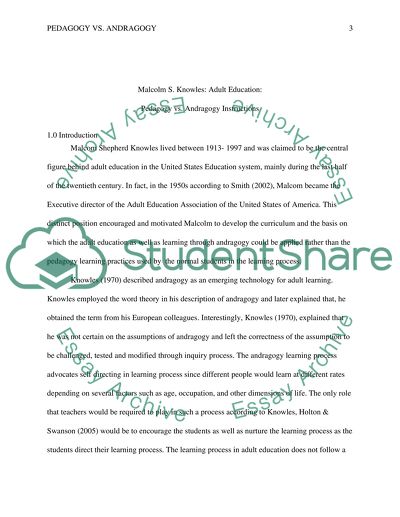Cite this document
(“Malcolm S. Knowles: Adult Education: Pedagogy vs. Andragogy Research Paper”, n.d.)
Retrieved from https://studentshare.org/education/1405007-malcolm-s-knowles-adult-education-yt-pedagogy-vs
Retrieved from https://studentshare.org/education/1405007-malcolm-s-knowles-adult-education-yt-pedagogy-vs
(Malcolm S. Knowles: Adult Education: Pedagogy Vs. Andragogy Research Paper)
https://studentshare.org/education/1405007-malcolm-s-knowles-adult-education-yt-pedagogy-vs.
https://studentshare.org/education/1405007-malcolm-s-knowles-adult-education-yt-pedagogy-vs.
“Malcolm S. Knowles: Adult Education: Pedagogy Vs. Andragogy Research Paper”, n.d. https://studentshare.org/education/1405007-malcolm-s-knowles-adult-education-yt-pedagogy-vs.


